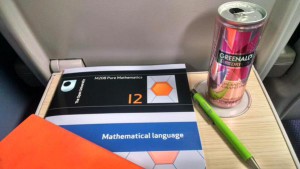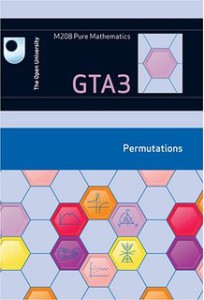This morning I had a tutorial for module MS221 of my OU Maths degree. In addition to complex numbers, groups, and proofs one of the topics we covered was RSA encryption and decryption. As I’m a little behind in my study I’m going to use this post to explain how this type of encryption works (even though this is already covered elsewhere e.g. in wikipedia). You’re going to need a little maths to follow this, but hopefully not too much!
Firstly, a quick recap. Public-private key encryption means that you have a pair of keys – the public one you can give out without a care and anyone can use this to encrypt messages to you. Without the private key to decrypt, it’s practically impossible to decipher the encrypted messages, so as long as you actually keep your private key private, everything is (relatively) safe. As an aside, if your private key is obtained by someone else then they will be able to read your messages and you would never know.
Continue reading Public-Private Keys





 XKCD: Correlation
XKCD: Correlation